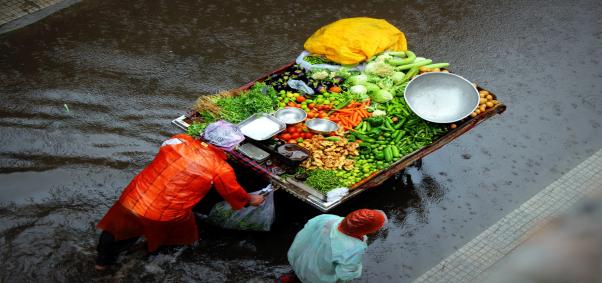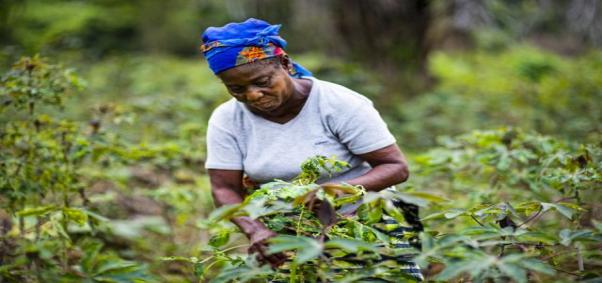
New Delhi – August 3, 2015: India can significantly boost economic performance and ensure the well-being of its people through reforms in cities, energy, and land use, according to research from the Global Commission on the Economy and Climate, launched in New Delhi today at an event with Shri Prakash Javadekar, Minister for Environment, Forests & Climate Change.
“India has as opportunity to improve the quality and quantity of its economic growth by embracing the low-carbon economy and focusing on access to water and electricity,” said Naina Lal Kidwai, Chair of HSBC India and a member of the Global Commission. “The government's ambitious goals for renewable energy and conserving our precious water resources recognize this. A low-carbon transition will improve our productivity and would allow us to enjoy cleaner air in our cities as it envisages us living in more compact, connected, and coordinated cities.”
In India’s cities, air pollution, congestion, and urban sprawl are reducing productivity. Half the world’s most polluted cities are in India, including the top four in the world: Delhi, Patna, Gwalior, and Raipur. Delhi’s PM 2.5 pollution level is sometimes as high as 15 times the WHO’s suggested limit. Air pollution already costs India the equivalent of 6.5% of GDP and causes hundreds of thousands of premature deaths each year.
In response, the report recommends loosening building restrictions in order to contain urban sprawl, as well as improving public transit, water supply, sewage systems, sanitation, and electrical power. It also suggests strengthening the hand of city governments to enable them to lead better urban development.
Both in India’s cities and rural areas, the economics of energy are shifting. The cost of renewable energy has decreased around 65% over the last 3 years. By 2030, the cost of foreign coal will be 30-50% higher than domestic wind and solar. The National Solar Mission is aiming for 100 GW by 2020, but the potential is even higher: 749 GW for solar and 2,000 GW for wind. The report recommends that the government implement innovative financing and distribution models to unlock the potential of renewable energy.
Climate change could severely damage Indian’s agricultural output, the report finds. For example, global warming of only 1°C could decrease wheat production by 6 million tonnes. By shifting public spending on agriculture from subsidies to research and development (R&D), India has the opportunity to raise farmers’ incomes, strengthen resilience to climate change, and lower greenhouse gas emissions, all at the same time. Economic returns on agricultural subsidies are close to zero, while those for rural infrastructure and agricultural R&D are very high. And R&D is better than subsidies at reducing rural poverty.
“India’s agricultural sector faces significant risks from climate change but it also has enormous potential to become part of the solution,” said Paul Polman, CEO of consumer goods multinational Unilever. “Innovation in this sector has the potential to change the lives of over 600 million people.”
ENDS
Notes to Editors:
The New Climate Economy is the flagship project of the Global Commission on the Economy and Climate. It was established by seven countries: Colombia, Ethiopia, Indonesia, Norway, South Korea, Sweden and the United Kingdom, as an independent initiative to examine how countries can achieve economic growth while dealing with the risks posed by climate change.
Chaired by former Mexican President Felipe Calderón, and co-chaired by renowned economist Lord Nicholas Stern, the Commission comprises 28 leaders from 20 countries, including former heads of government and finance ministers, leading business people, investors, city mayors and economists.
Research for the Commission has been carried out by a partnership of leading global economic and policy institutes, including the World Resources Institute (Managing Partner), the Climate Policy Initiative, the Ethiopian Development Research Institute, the Global Green Growth Institute, Indian Council for Research on International Economic Relations, the Overseas Development Institute, the Stockholm Environment Institute and Tsinghua University.
The report is available online at http://2014.newclimateeconomy.report/india/
For media inquiries contact:
Joel Jaeger, Joel.Jaeger@newclimateeconomy.net






